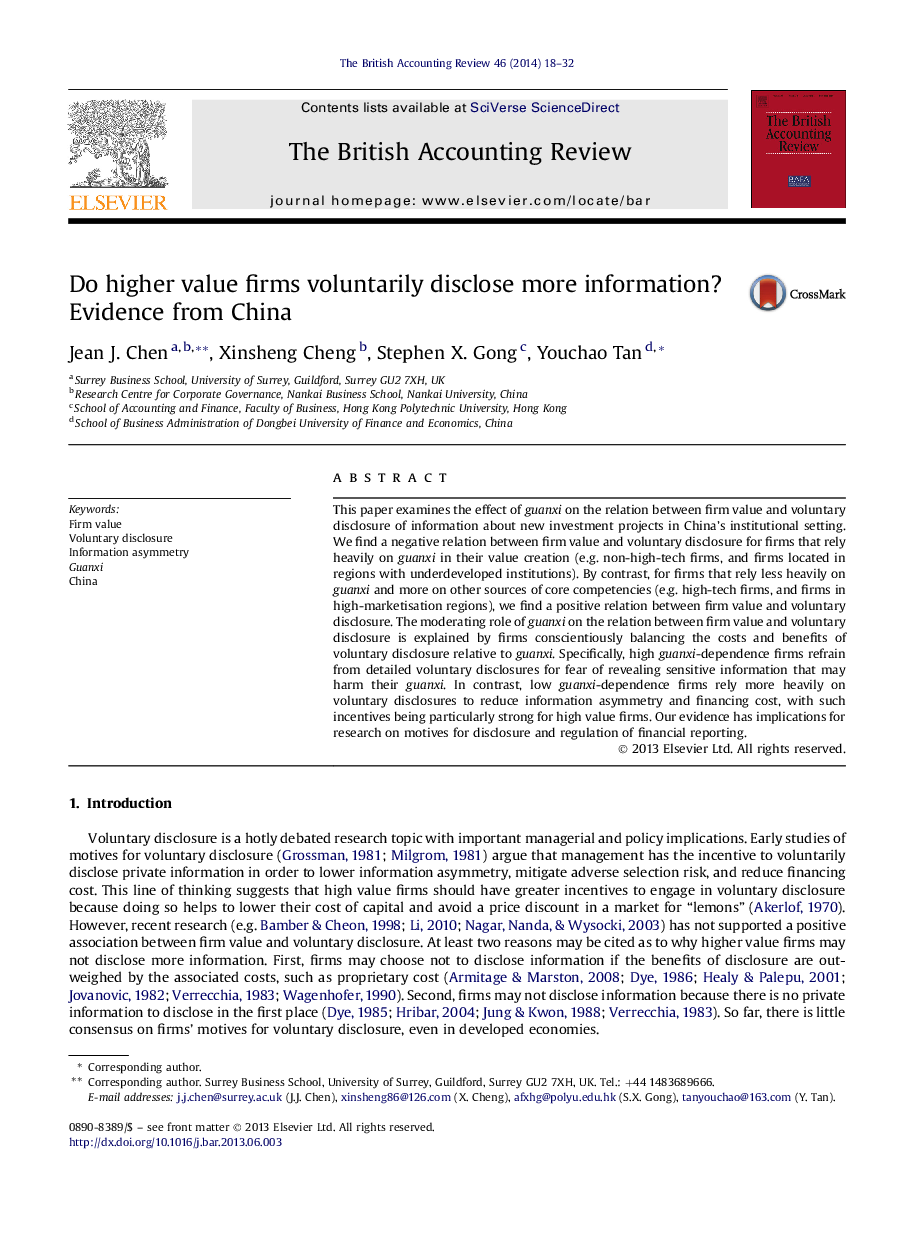| Article ID | Journal | Published Year | Pages | File Type |
|---|---|---|---|---|
| 1003970 | The British Accounting Review | 2014 | 15 Pages |
This paper examines the effect of guanxi on the relation between firm value and voluntary disclosure of information about new investment projects in China's institutional setting. We find a negative relation between firm value and voluntary disclosure for firms that rely heavily on guanxi in their value creation (e.g. non-high-tech firms, and firms located in regions with underdeveloped institutions). By contrast, for firms that rely less heavily on guanxi and more on other sources of core competencies (e.g. high-tech firms, and firms in high-marketisation regions), we find a positive relation between firm value and voluntary disclosure. The moderating role of guanxi on the relation between firm value and voluntary disclosure is explained by firms conscientiously balancing the costs and benefits of voluntary disclosure relative to guanxi. Specifically, high guanxi-dependence firms refrain from detailed voluntary disclosures for fear of revealing sensitive information that may harm their guanxi. In contrast, low guanxi-dependence firms rely more heavily on voluntary disclosures to reduce information asymmetry and financing cost, with such incentives being particularly strong for high value firms. Our evidence has implications for research on motives for disclosure and regulation of financial reporting.
